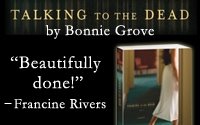Funny thing about the home stretch - it's a tricky time. You can see the finish line, but you aren't there yet. It takes an extra burst of creative focus and effort to reach the end.
It's like going to the office the day before you leave for vacation. You arrive full of good intentions to clean off your desk, tie up loose ends, but mentally you are already frolicking on the beach. How much work actually gets done? Not so much.

Writing copy (the blurbs for back cover, media, catalogs, etc) is part of the home stretch experiences. Again, my publisher is awesome about inviting me into the process of creating the book - the copy is no exception. As the words flow between myself and the publisher, I'm aware how much effort it takes, on my part, to keep my head in the game. I'm close to the end of this book, but not yet finished. The details that happen now are every bit as important as every other step of the journey - bad copy translates all the way down the line and makes everyone's job more difficult.
Think about the sales team, working to sell a book to a retailer or distributor. With a good, well written, clear copy, they can get excited about the book. Bad copy means the sales team has to work harder, explaining the copy, assuring the customer it really IS a good book. It makes their lives miserable! No author wants to make salespeople's work more difficult than it already is.
That said, how do you ensure copy that sings? Some thoughts:
1) Keep your head in the game. Forget the finish line. Publishing is a marathon - not a sprint. It might feel like a finish line because you have completed the actual writing - but it isn't. Writing a book is one station on the marathon - there are miles to go, still.
2) Buddy up. Whenever possible, work with your publisher in creating copy. I said WITH them - don't fight them. Changes are your publisher has been writing copy for a long time and knows which elements need to be included and which don't. Ideally, you will have several people working on the copy - including your editor. Don't invite your Aunt Marge into the mix. Stick with the professionals and play nice.
3) Call on your muse. You're a writer. Get funky with your muse while writing copy. It is as much a creative act as writing the novel. I've been amazed over the past few years how many writers I've met who don't think and act creatively outside of writing a novel. Don't tell yourself to "think outside the box". You are a writer. There is no box.
4) Remember your high concept idea. Time tested novels have easy, universal high concept ideas which can be stated in one sentence. Yep. One. Short. Sentence. Now, some will say high concept = commercial (read: low brow), and sure, pop novels employ high concept. But that doesn't mean you should avoid using high concept just because you are writing fallooting literary works of the highest cerebral standard. If it takes you twenty minutes to tell me what your book is about, chances are I've fallen asleep standing up. Use your high concept idea as a guide in writing copy that speaks to the reader.
Now, I'm off to take my own advice! Writing is an adventure - keep your head in the game.
I bid you good writing.









3 comments:
Marathon not a sprint - wise words!
That is such good advice. I really like the writing and editing part. Learning to work with publishers is something I haven't had to know yet.
Very exciting. Good to be reminded that there's still work to do after the publisher says "yes." :)
Post a Comment